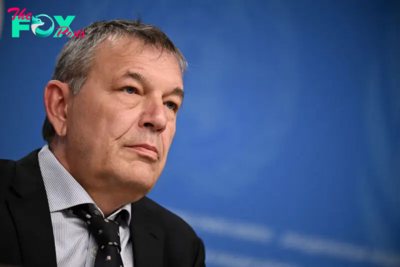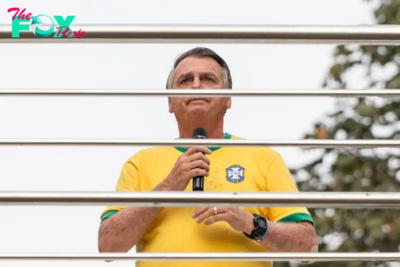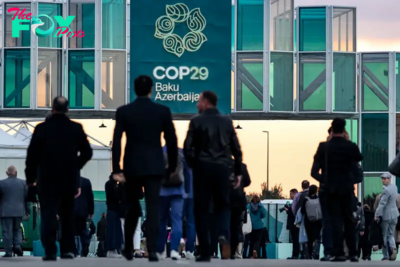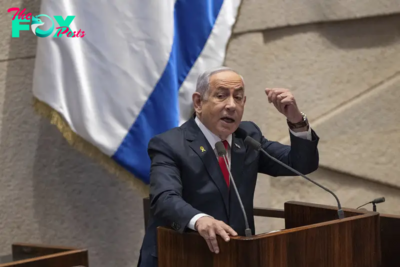World News
Why India’s Political Opposition Is So Weak
When more than two dozen opposition parties in India announced they would band together as the Indian National Developmental Inclusive Alliance (or INDIA) last June, critics of the ruling Bharatiya Janata Party were hopeful they could pose a formidable challenge to the widely popular incumbent government. But weeks before voting in the country’s general election gets underway, the big-tent alliance is fractured from infighting, clashes, and comPeting interests. Worse still, a crackdown on the opposition by the Indian government has now reached what Amnesty describes as “a crisis point.”
“We are seeing a situation where opposition parties are very, very weakened as we approach elections,” says Anjali Bhardwaj, the founder of Satark Nagrik Sangathan, a Delhi-based citizens’ group working to promote transparency and accountability in government. “They have been attacked, their leaders are either under arrest or being seriously investigated, and their homes and offices are being raided.”
The latest—and perhaps most historic—blow to the opposition occurred on March 21, when Delhi’s chief minister Arvind Kejriwal was arrested by the Enforcement Directorate (ED), a federal economic law enforcement agency, for bribery in awarding liquor licenses to contractors in the national capital nearly two years prior—allegations that he denies. Several others connected to the case are also in jail on graft charges.
Kejriwal’s arrest sparked mass outrage in Delhi, with protestors taking to the streets to demand the release of one of the country’s most iNFLuential and outspoken critics of Indian Prime Minister Narendra Modi. As the leader of the Aam Aadmi Party, or AAP, which currently controls state governments in the national capital region and Punjab, he is considered a thorn in the side of the government.
The buck doesn’t stop at Kejriwal and his party. India’s biggest and main opposition party, the Indian National Congress, has accused the government of hampering its ability to campaign by freezing its bank accounts over a tax dispute from 2018. That’s after Congress leader and party scion Rahul Gandhi was given a two-year jail sentence last March on defamation charges that were later suspended by the Indian Supreme Court. Gandhi united with other opposition party leaders to protest in the nation’s capital on Sunday, where he told the crowd that Modi was “trying match-fixing in this election.”
Though Kejriwal’s arrest is not exactly a surprise, it nevertheless raises eyebrows when one considers that Modi has little to fear in this election. The Indian leader has seen a surge in popularity following the Ram Temple inauguration in the city of Ayodhya earlier this year, a capstone for a powerful leader who has built a mass following on religious nationalism. A recent survey found that 78% of those polled approved of Modi. Pundits predict an easy win for the BJP.
“Mr. Modi is a popular leader who has garnered a lot of support amongst people in the Hindu majority,” contends Bhardwaj, “but we are also seeing a complete crackdown on political opposition and the capture of institutions.” The result is a situation where “someone who is portraying himself as a strong leader is popular, and then using the machinery to stay in power,” she says.
With the election a mere 17 days away, all eyes are now on India’s opposition to see if it can successfully sound the alarm on the prospect of a constitutional crisis. The big question, says Bhardwaj, is “how free and fair the elections are likely to be with these kinds of challenges.”
Read More: India’s Income Inequality Is Now Worse Than Under British Rule, New Report Says
The weaponization of institutions
Political experts say the key reason behind the decline in India’s opposition is that many of the important institutions essential to the functioning of democracy—such as independent media or the judiciary—have been captured by those in power.
For example, in the 2014 elections, corruption was a prominent theme in the BJP’s platform, helping create a wave against the incumbent Congress party at the time. “Thousands of people gathered on the streets in Delhi to protest against corruption, and it was reported very extensively by the mainstream media,” recalls Bhardwaj.
But over the last decade, India’s mainstream media has largely come under the control of large corporations whose CEOs often rub shoulders with the prime minister. “Since mainstream media is effectively an echo chamber celebrating the Modi government, it is unsurprising that the opposition struggles,” says Maya Tudor, an associate professor at Oxford’s Blavatnik School of Government.
Even when the media covers issues of importance to the Indian electorate, Bhardwaj says it fails to question the timing or manner in which certain events occur. For example, Kejriwal’s arrest has been portrayed in the mainstream media as though “the party in power is really serious about fighting corruption,” Bhardwaj says, while little attention has been given to the timing of the arrest, which occurred mere weeks before the election.
Space for civil society has also shrunk through the use of various laws and institutions, leading to a chilling effect on protest. Police have quelled peaceful protests and thrown activists and dissidents into jail using draconian anti-terrorism laws. The courts have mostly refrained from granting bail to many of these individuals.
Federal investigating bodies like the ED and the Central Bureau of Investigation (CBI) have worked to strengthen the government's policies or actions by going after their critics. According to an investigation by the national outlet Indian Express, some 95% of the agencies’ investigations since 2014 have focused on the opposition. Under the previous government, that number was much lower, with 54% of ED and 60% of CBI investigations probing the opposition.
As a result, Bhardwaj says that many of the issues that would “ordinarily bother voters and capture their imagination”—such as unemployment, iNFLation, corruption, or the incarceration of civil society leaders—“are not finding prominence” among the Indian public.
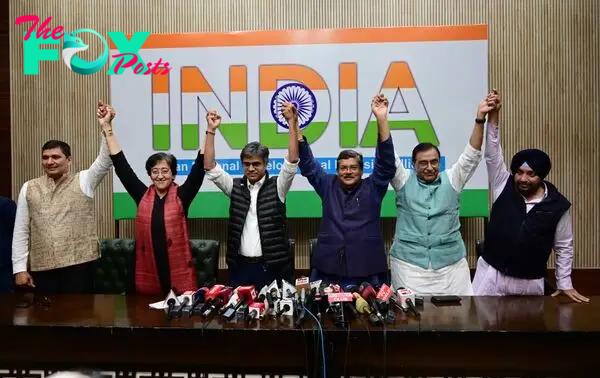
A united front, but fractured alliances
The BJP has denied political meddling to stifle the opposition, arguing that Congress is “conveniently blaming their irrelevance on ‘financial troubles.’” Yet, several opposition leaders mired in corruption investigations have usually seen those charges get dropped when they joined the ruling party. “All cases against them seem to go into cold storage,” says Bhardwaj.
The Wire, an Indian outlet, recently published a report that found at least 12 opposition leaders across Indian states joined the BJP while facing criminal charges in the past several months. This is also what happened with Nitish Kumar, the chief minister of Bihar, who earlier this year jumped ship to the BJP just before the ED planned to arrest him on charges of money laundering.
There’s even a term coined for this phenomenon. “We have started referring to it as the ‘washing machine effect,’” says Bhardwaj, which has in turn lent credence to the idea that opposition leaders are more interested in power over political ideology in serving their electorate.
The INDIA alliance has made little headway in presenting itself as a united front in challenging Modi, thanks to factional infighting and coNFLicts in seat-sharing negotiations. The Congress Party, which dominated Politics after India’s independence in 1947, has increasingly fielded its own candidates to fill seats in a majority of the states, alienating regional parties, many of whom were already at loggerheads with each other across state lines. This has also contributed to the loss of another critical figurehead, Mamata Banerjee—the head of the All India Trinamool Congress—who in January declared that her party would run independently.
All this has amounted to, at best, a weak attempt to challenge Modi’s popularity. “Oppositions turn out incumbent governments most effectively when they coordinate a single opposition candidate per district and when they are ideologically unified,” says Tudor, whose research looks at what electoral conditions must be met to succeed in India’s elections.
Put simply, “the opposition has not done a great job meeting these criteria,” she says.
-

 World News2d ago
World News2d agoLandmark Bill to Ban Children From Social Media Introduced in Australia’s Parliament
-

 World News2d ago
World News2d agoAmerican and Australian Tourists Die in Laos After Drinking Tainted Alcohol
-

 World News2d ago
World News2d agoSee Photos of the Seventh Volcanic Eruption on Iceland’s Reykjanes Peninsula in 12 Months
-
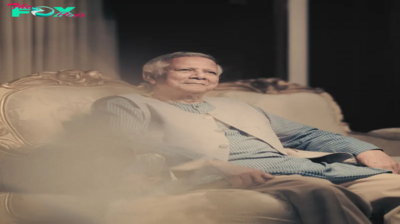
 World News2d ago
World News2d agoMuhammad Yunus on the Race to Build Bangladesh 2.0
-
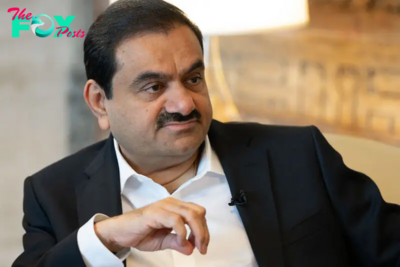
 World News3d ago
World News3d agoU.S. Charges Indian Billionaire Gautam Adani With Defrauding Investors
-
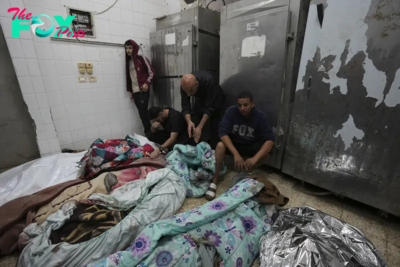
 World News3d ago
World News3d agoU.S. Vetoes U.N. Resolution Demanding a Cease-Fire in Gaza
-
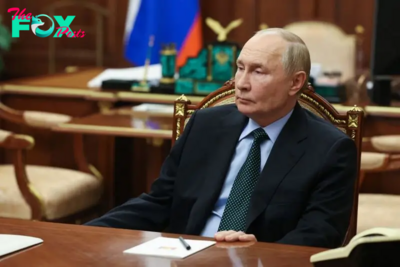
 World News3d ago
World News3d agoPutin Signs New Doctrine Lowering Nuclear Weapons Threshold in Warning to U.S.
-
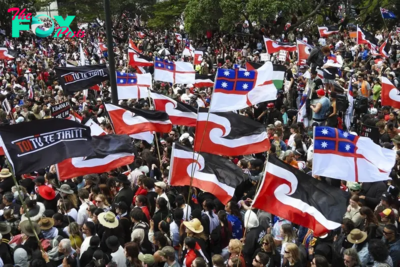
 World News3d ago
World News3d agoTens of Thousands Rally at New Zealand’s Parliament in Support of Māori Rights
